Dimitra and IDMA Join Forces to Transform Agriculture in Peru with AI and Blockchain
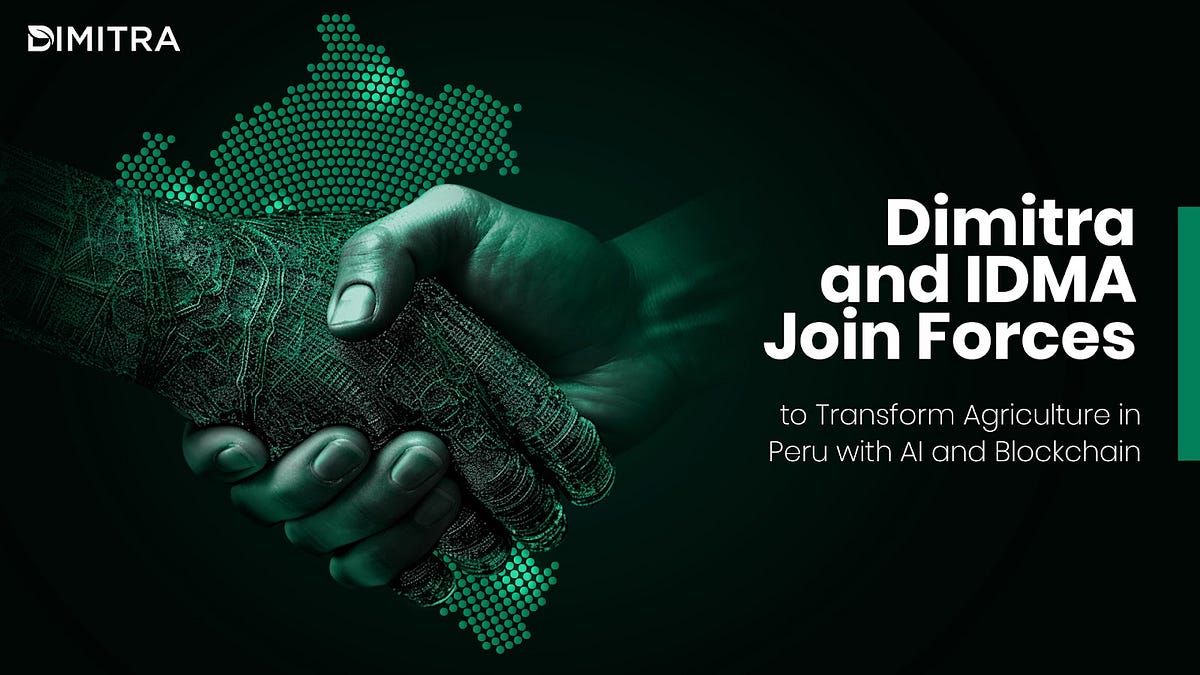
Dimitra Incorporated
New Horizon Building, 3-1/2 Miles Philip S.W. Goldson Highway, Belize City
info@dimitra.io
New Horizon Building, 3-1/2 Miles Philip S.W. Goldson Highway, Belize City
info@dimitra.io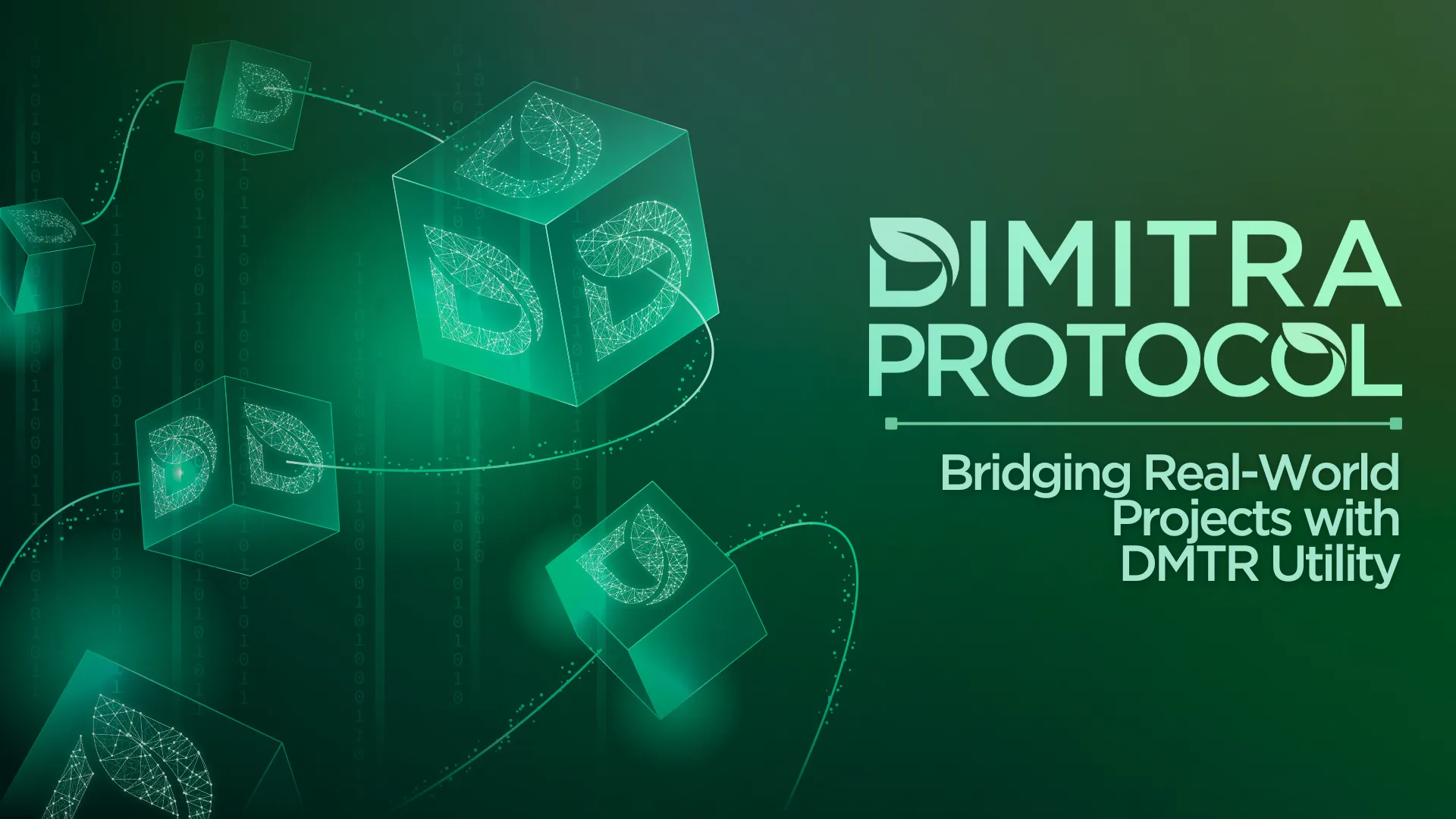
New Horizon Building, 3-1/2 Miles Philip S.W. Goldson Highway, Belize City
info@dimitra.io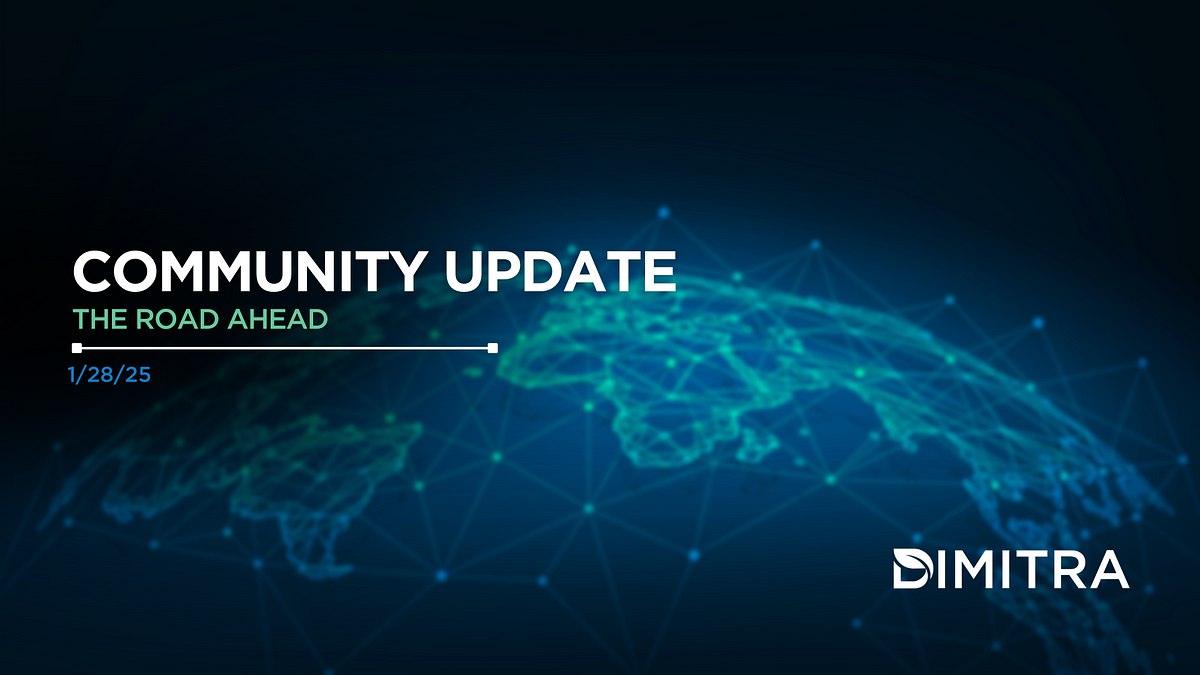
To Our Valued Community,
First and foremost, we want to express once again our deep regret for the recent events that have impacted both you and the Dimitra team. While our commitment to security has always been a priority — with safeguards such as cold wallets and, in some cases, requiring multiple signatures for transaction approvals — these measures, unfortunately, proved insufficient in this specific instance. We acknowledge the need to implement additional protective measures and sincerely apologize for not fully meeting the trust you’ve placed in us.
New Horizon Building, 3-1/2 Miles Philip S.W. Goldson Highway, Belize City
info@dimitra.io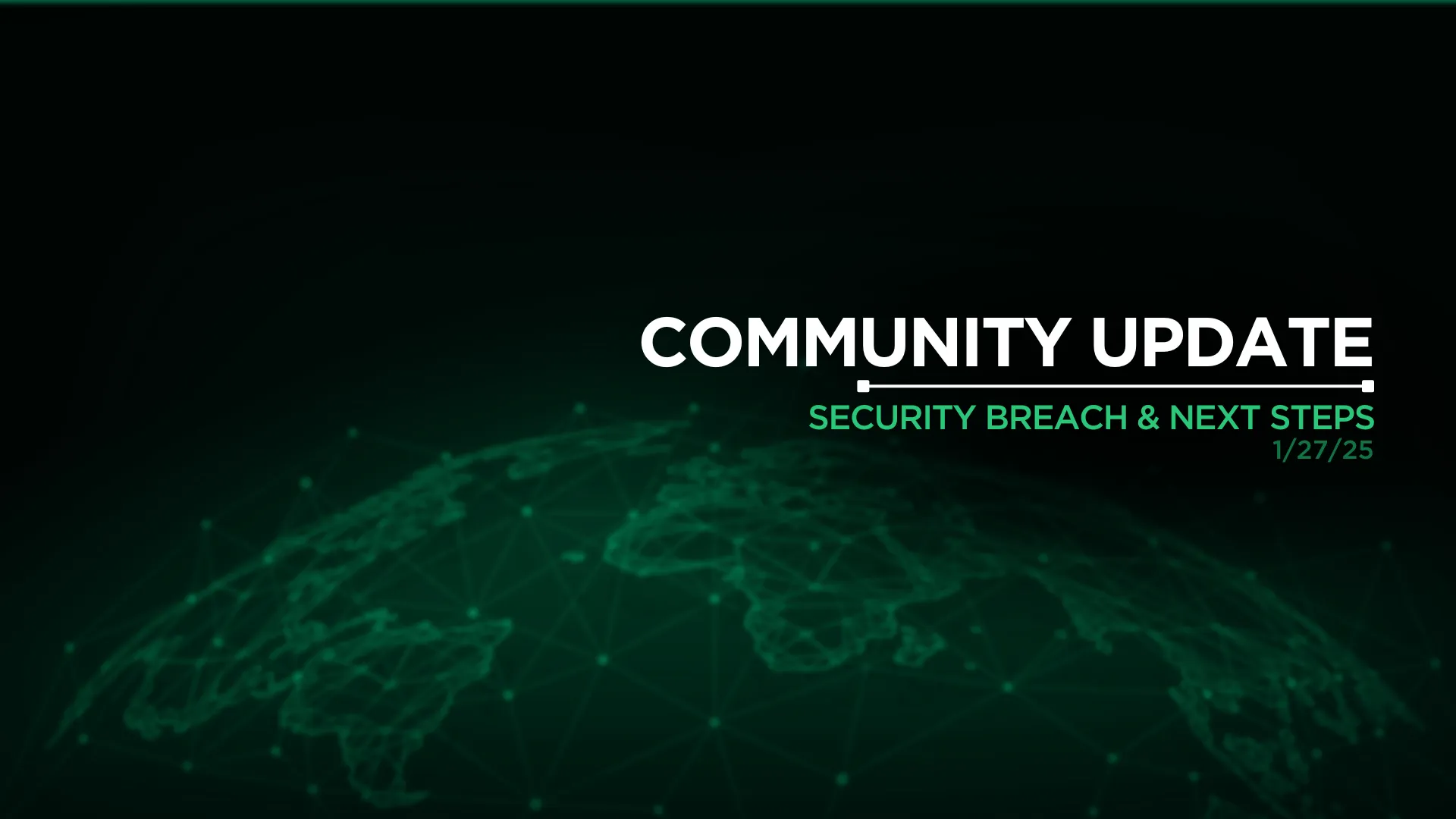
Dear Dimitra Community,
First, we would like to thank the community for your outstanding support over the last 24 hours. We recognize the difficulty and stress this situation has caused, and it’s clear that we have a community that truly stands together. Please know that we remain committed to transparency, keeping you informed every step of the way as the situation unfolds.
For those wanting to learn more, on the evening of January 26th, one of our cryptocurrency wallets was hacked. Our team is actively investigating the situation to determine the scope of the incident. We are committed to transparency and will provide updates, including the next steps, as soon as possible.
New Horizon Building, 3-1/2 Miles Philip S.W. Goldson Highway, Belize City
info@dimitra.io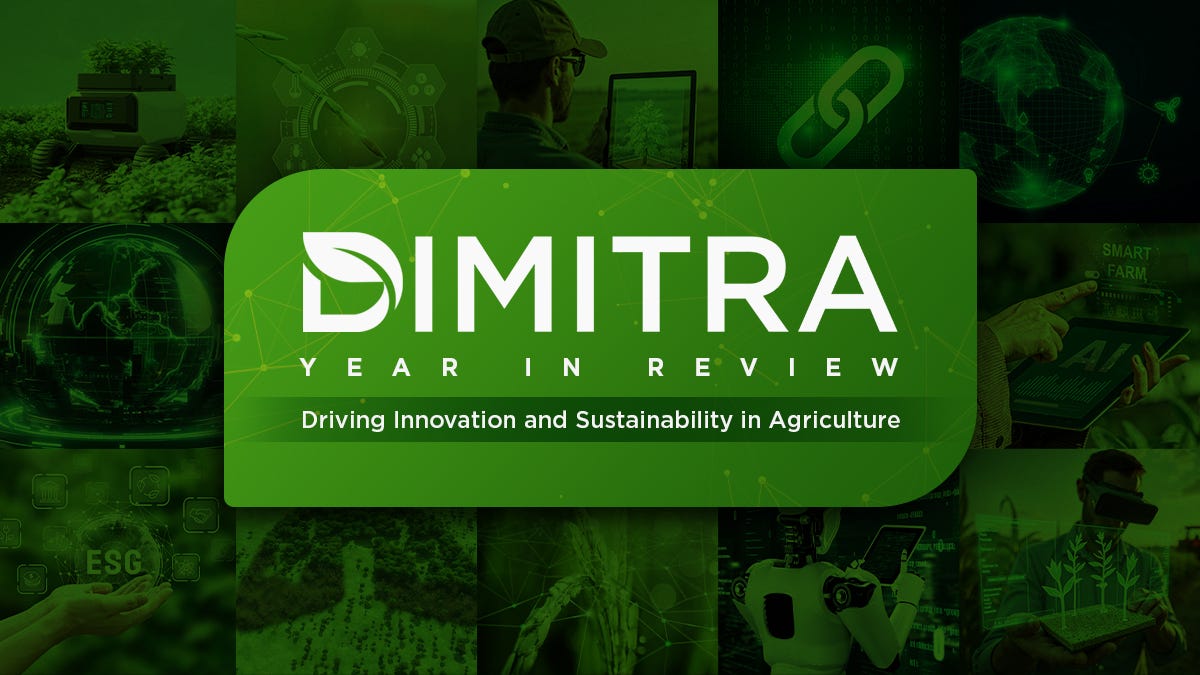
As 2024 comes to a close, Dimitra reflects on a year defined by technological breakthroughs, impactful collaborations, and a commitment to empowering global agriculture through sustainability and innovation. From advances in AI and blockchain to global partnerships driving change, Dimitra continues to lead the AgTech revolution.
Dimitra strives to help developing countries in ways that go beyond agricultural technological development. We have also undertaken course development in software programming skills, in areas that include Web Development and Mobile App Development, including the application of the most recent developments in LLM based software development and testing AI agents and tools.
Our goal with these educational efforts is to provide opportunities for local youth to learn valuable skills and to provide technological employment opportunities that allow skills development opportunities that allow the fostering of local technological entrepreneurship. Course development in Machine Learning, Web3/Blockchain and Agronomic Sciences are next in our global training roadmap.
Here’s a look at the milestones, regional achievements, and leadership changes that defined 2024.
Dimitra’s efforts in Latin America this year have showcased the region’s critical role in advancing sustainable agriculture through innovative technology and strategic partnerships.
Transformative Success Stories
Strategic Partnerships
Regional Events
Dimitra’s presence at key events underscored its commitment to innovation and sustainability:
Through its initiatives and collaborations, Dimitra continues to lead agricultural transformation in Latin America, driving compliance, sustainability, and growth.
New Horizon Building, 3-1/2 Miles Philip S.W. Goldson Highway, Belize City
info@dimitra.io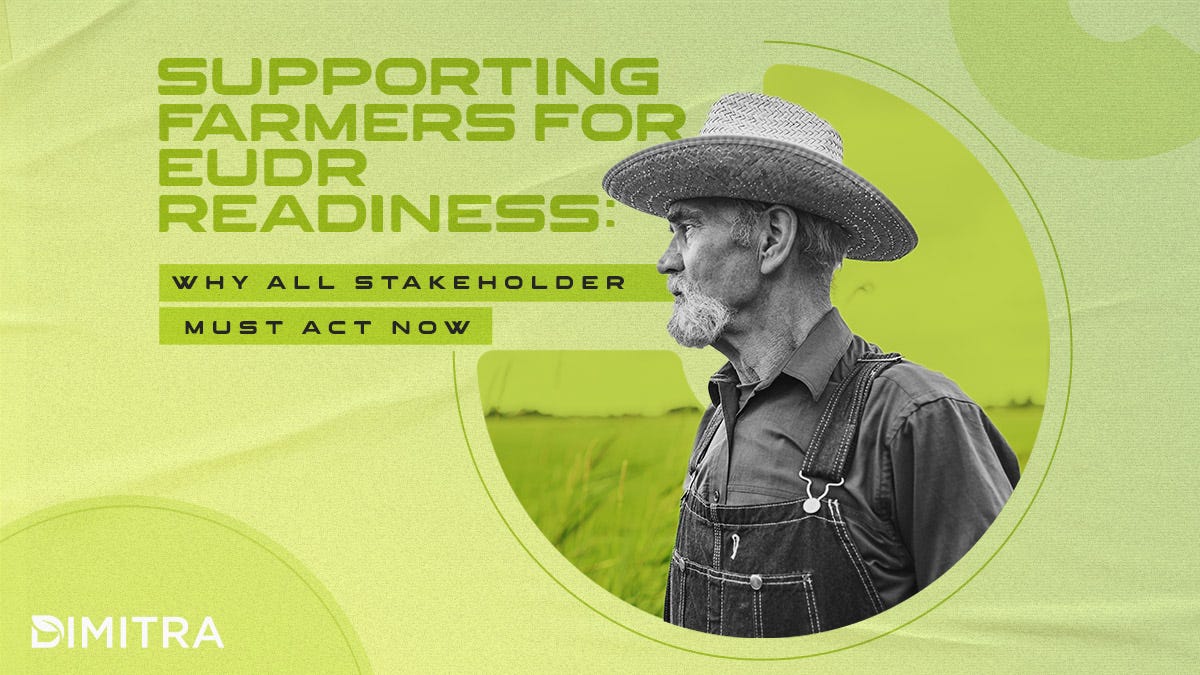
The European Union Deforestation Regulation (EUDR) has officially passed, and while the media may frame its “phasing-in” as a delay, the reality is quite different. This misconception could be harmful to not only farmers but also traders, operators, and other stakeholders who mistakenly believe they have ample time to prepare. The truth is that this phasing-in period is not a delay — it is a crucial window for preparation, particularly for those at the end of the chain who must support farmers to get the job done.
The EUDR law is here to stay, and the EU Commission has recently confirmed a 12-month phasing-in period, not as a delay but as an opportunity for everyone along the supply chain to align their systems and practices with the new regulations. By the end of this period, full compliance will be mandatory. Large companies have until December 30th, 2025, and Small and Medium Enterprises (SMEs) until June 2026.
However, this extra time is not an excuse to wait — it’s a call for action, especially for operators in the EU. They hold the key to enabling farmers to prepare and meet the new standards.
Preparing for EUDR compliance is not solely a farmer’s responsibility — it requires coordinated action from every stakeholder, particularly those in key market positions. Farmers need help mapping their plots, while traders must gather and verify documentation. Exporters are responsible for validating supplier data, and cooperatives need traceability systems in place. Without the collaboration and support of operators at the end of the chain, farmers may struggle to meet the requirements on their own.
Key steps for all stakeholders include:
Dimitra’s expertise across commodities, origin operations, and trade uniquely positions us to guide not just farmers, but every stakeholder along the supply chain in achieving compliance. Our technology streamlines the process, reducing the burden on farmers by ensuring operators and traders are fully equipped to support them.
At Dimitra, we are already working with operators globally to ensure full EUDR readiness. Our comprehensive suite of solutions leverages AI, blockchain, IoT, and satellite technology to facilitate sustainability, traceability, and compliance at every stage. Here’s how we support the entire supply chain:
Dimitra’s holistic approach empowers all stakeholders, from farmers to operators, to meet EUDR compliance while improving sustainability and efficiency across the supply chain.
Time is of the essence for EUDR compliance. It’s not just farmers who must act, but also destination operators, traders, exporters, and cooperatives. Every player in the supply chain needs to begin preparations now, despite the extended timeline. Dimitra understands the complexity of implementing compliant processes, integrating software, and managing change — this is why we’re here to help every step of the way.
Our message is clear: start preparing now. The phasing-in period is an opportunity, not a delay. Don’t wait until the last minute — avoid last-minute scrambles and begin your compliance journey today with Dimitra’s comprehensive solutions. We are ready to guide you, ensuring that all stakeholders — from farmers to EU operators — are equipped to meet EUDR standards.
Visit dimitra.io or contact our team to learn how we can help you achieve EUDR compliance today.
New Horizon Building, 3-1/2 Miles Philip S.W. Goldson Highway, Belize City
info@dimitra.io
As the coffee industry continues its evolution toward greater transparency and sustainability, ALKO, an Indonesian specialty coffee producer, has teamed up with an international partner to expand into the Japanese market. With their second café opening in Osaka, Japan, the partnership showcases their commitment to providing consumers with ethically sourced, traceable coffee. At the core of this initiative is Dimitra’s cutting-edge technology, which has become the backbone of ALKO’s growing global supply chain.
New Horizon Building, 3-1/2 Miles Philip S.W. Goldson Highway, Belize City
info@dimitra.io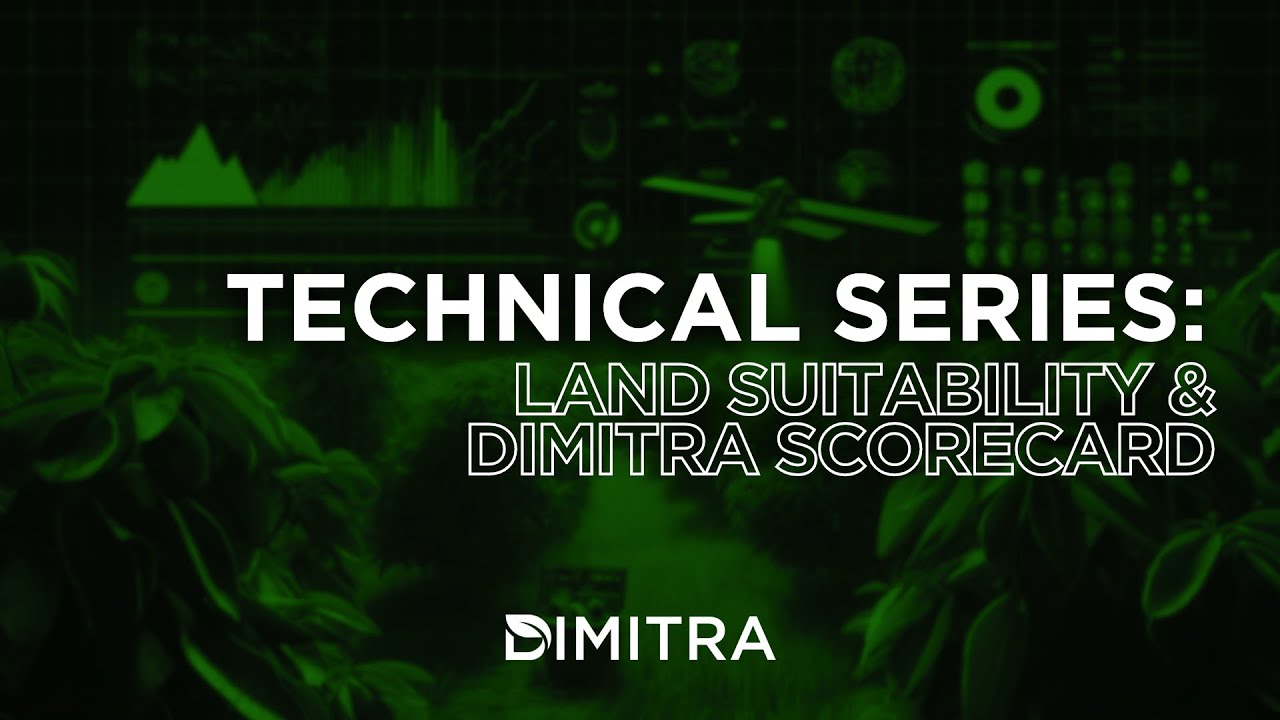
New Horizon Building, 3-1/2 Miles Philip S.W. Goldson Highway, Belize City
info@dimitra.io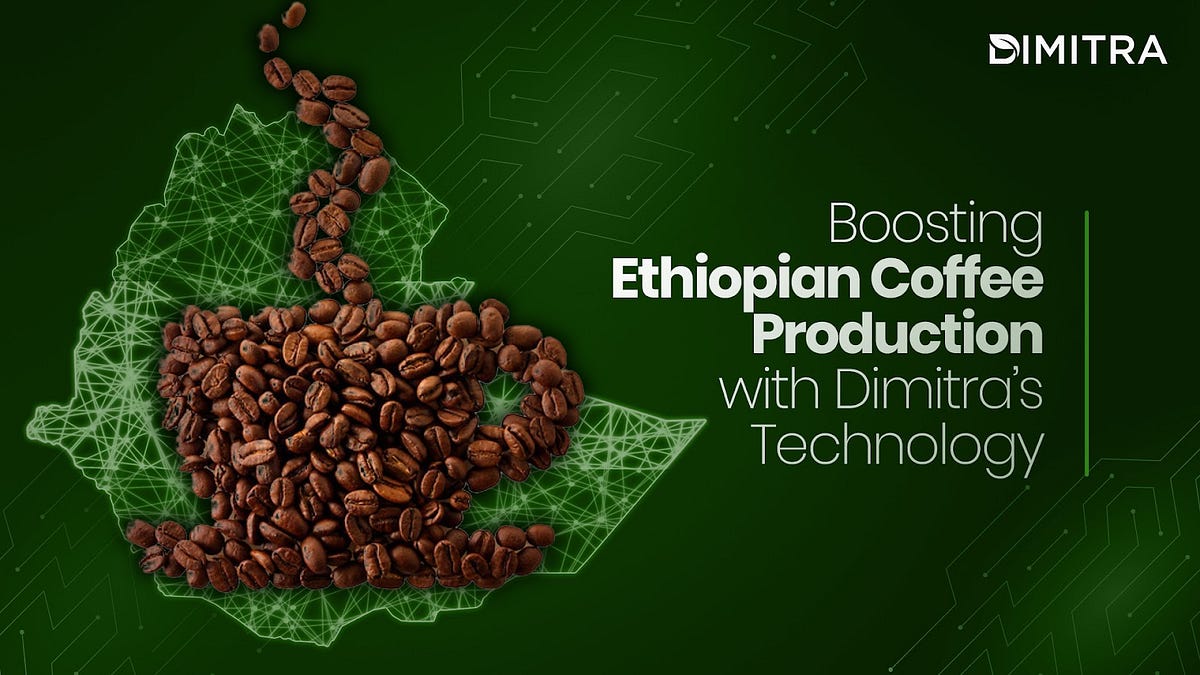
Deep in Ethiopia, something big is happening — a quiet revolution. Dimitra’s innovative agricultural technology is partnered with 12 local coffee unions to empower over 1.2 million farmers across hundreds of cooperatives and communities. By combining cutting-edge technology with hands-on support, Dimitra is transforming how coffee is grown, sold, and enjoyed.
The combined power of blockchain and artificial intelligence is fueling this revolutionary change. These technologies are more than just trendy phrases bandied about in tech circles; they’re tangible, real-world solutions that are revolutionizing industries and improving lives.
Dimitra’s commitment goes beyond technology. They understand that real change happens when farmers have the knowledge and confidence to succeed.
Dimitra’s extensive network spans 12 coffee unions, connecting with over 1.3 million smallholder coffee producers and reaching 1,145 cooperatives spread throughout diverse regions. This vast coverage encompasses over two million hectares of coffee-producing land, resulting in an estimated yield of over one million tons. By supporting these smallholder producers, Dimitra plays a vital role in sustaining the livelihoods of their families and communities, ultimately contributing to the global coffee supply.
Dimitra’s comprehensive suite of tools, including blockchain technology, advanced data analytics, and AI-driven insights, is available to every farmer within our network. This technology ensures complete traceability and transparency throughout the supply chain, helping farmers certify their organic and fair trade coffee, increasing market value, and opening access to international markets. This can improve farmer incomes and support community development for over 300K coffee farmers across cooperatives in the Limu Inara Farmers Multipurpose Cooperative Union and the Jorgo Birbir Multipurpose Farmers’ Cooperative Union.
By leveraging Dimitra’s technology, farmers within cooperatives such as Keta Muduga Multipurpose Farmers’ Union and Sorgaba can monitor soil health, optimize farming practices, and enhance crop quality. This collective boost in productivity and quality has the potential to support various community projects by increasing overall income, fostering educational and healthcare initiatives, and promoting social development.
Teklu Hailu, representing Keta Muduga Coffee Union stated, “Dimitra’s blockchain technology has given us unprecedented visibility into our supply chain, ensuring that our coffee reaches global markets with verifiable quality and ethical sourcing.”
Environmental monitoring tools provided by Dimitra help farmers within cooperatives like the Ethiopia Kefa Forest Coffee preserve biodiversity and promote eco-friendly farming practices. This dual focus on sustainability and transparency can enhance both farmer incomes and conservation efforts, benefiting the entire community.
Dimitra’s comprehensive farm management software aids cooperatives like Jimma Coop Union and Cher-Cher Oda Bultum Farmers’ Cooperative Union in diversifying income sources and improving infrastructure. These improvements, supported by efficient farming practices enabled by our technology, could enhance the quality of life for cooperative members and their families through educational, healthcare, and social development projects.
A spokesperson from the Jimma Multipurpose Farmers’ Cooperative Union commented, “Dimitra’s technology allows us to maintain precise records and transparency, which has greatly increased trust among our international buyers.”
Through Dimitra’s support, cooperatives across Ethiopia have seen improvements in traceability, product quality, and market access. These advancements could lead to new opportunities and increased revenues, directly benefiting farmers and their communities.
Dimitra’s commitment to Ethiopian cooperatives is rooted in our belief that sustainable agriculture is key to a prosperous future. By leveraging advanced technology and fostering strong partnerships, we are helping farmers increase productivity, enhance coffee quality, and improve their livelihoods.
Visit dimitra.io to learn more about our projects and how you can get involved.
New Horizon Building, 3-1/2 Miles Philip S.W. Goldson Highway, Belize City
info@dimitra.io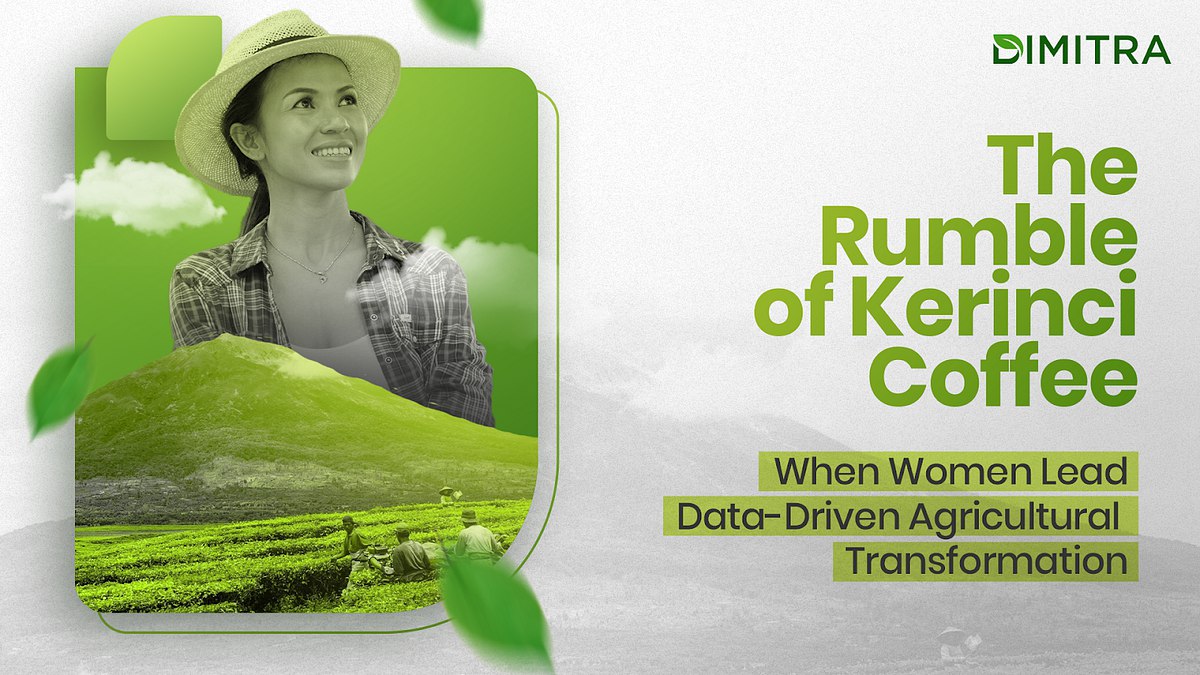
Dimitra Kerinci Coffee – Amidst the challenges of Indonesia’s agro maritime sector, an inspiring story emerges from Kerinci, Jambi. The ALKO coffee farming community has proven that innovation and empowerment can change the face of traditional agriculture.
ALKO’s cooperative model places farmers as the main shareholders, and has succeeded in improving the welfare of its members through fair prices, dividend distribution and a spirit of collaboration.
More interestingly, ALKO has become a magnet for the highly educated young generation, including women. One of them is Puput Sari Puspita, a law graduate who is now leading the data-based transformation of coffee plantations at ALKO.
In a short time, Puput succeeded in implementing the Dimitra Connected Coffee Traceability platform. Together with her team, Puput carries out farmer data collection, land mapping and regular production records. Puput’s obsession with data and blockchain technology opens up new opportunities for him and other young colleagues to build a data-based Indonesian coffee industry.
Puput and her colleagues proved that the technology can be applied even in remote areas, such as in the village of Kayu Aro in the fertile Kerinci volcanic valley, which is a 10-hour drive from the nearest provincial capital. Puput has been successfully utilizing the Dimitra Connected Coffee Traceability platform, which enables farmer data collection, land mapping and regular production recording. Slowly but surely, the coffee farming community, whose members are 40% women, will understand the concepts of traceability, deforestation and blockchain. Puput and her colleagues are on a data-driven farming mission to help us all face climate change and start building real carbon savings.
ALKO believes that data is the key to increasing marketing value, helping farmers deal with climate change, and benefit from carbon sequestration. ALKO targets traceability for all their partner coffee cooperatives in eleven provinces in Indonesia. They also do not hesitate to provide blockchain-based deforestation information and EUDR due diligence documents to all their buyers/importers.
The collaboration with ALKO is transforming agriculture into a global platform, empowering young people, both women and men, to lead change. Activities in villages, such as those carried out by ALKO in collaboration with DIMITRA, are clear proof that agricultural transformation can occur anywhere and be led by anyone, including women and the younger generation in rural areas. This initiative not only improves the welfare of farmers, but also contributes to environmental preservation and sustainable agricultural development in Indonesia.
New Horizon Building, 3-1/2 Miles Philip S.W. Goldson Highway, Belize City
info@dimitra.io